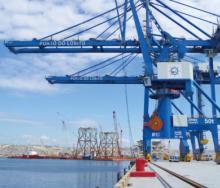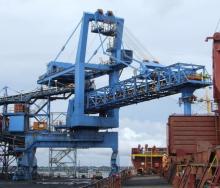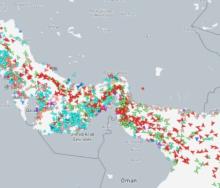The Road Freight Association (RFA) has expressed concern about the recent suspension of the Road Traffic Infringement Agency’s (RTIA) chief executive officer, Japh Chuwe, amidst allegations of “serious maladministration” by the Auditor-General.
“This has a severe impact on the implementation of the highly controversial Administrative Adjudication of Road Traffic Offences Act (Aarto), which is scheduled to be implemented in July this year,” said RFA CEO Gavin Kelly.
“While we welcome the uncovering of corruption, it would be irresponsible and reckless for Government to proceed with the implementation of Aarto. The RFA has over the years expressed concern and uneasiness about Aarto and its susceptibility to fraud, corruption, and money laundering. The RTIA’s latest announcement is confirmation of our worst fears,” he added.
Kelly pointed out that once Aarto was implemented, the RTIA would be handling billions of rand. “How can we now trust the entity – especially when the dishonesty and corruption is allegedly at the highest level in the agency? We already face huge corruption, extortion and intimidation at the hands of traffic police on a daily basis, and this latest development has highlighted how rampant dishonesty is in the public service – especially in the traffic law enforcement and management structures. These allegations have undermined what little faith we had in the RTIA. If the system is implemented, we envisage theft on a grand scale.”
The RFA has reiterated its call for Aarto to be scrapped. “The continuously amended system is all about generating revenue and not at all about road safety, which was what the system was originally about. Huge administrative resources will be required to implement and sustain an antiquated and cumbersome system, putting additional burdens on already overburdened government authorities and the private sector.”
Kelly said the Road Traffic Management Corporation (RTMC) – another agency of the Department of Transport – already cost motorists hundreds of millions of rand per annum through the levy imposed on all eNatis transactions. “This was supposed to be a temporary measure to get the RTMC on its feet. Like all other levies, this has become permanent, with no added value to citizens. The RTMC needs to step up and do its job – and that is to manage road traffic according to proper traffic management strategies with effective, centralised road safety interventions and operational management.
“The RFA believes that proper traffic management strategies, which focus resources to address hazardous locations and other aspects of unsafe road behaviour, would be far more effective in improving road safety than the current cumbersome Aarto system being proposed,” said Kelly.
Gavin Kelly – chief executive officer: Road Freight Association













